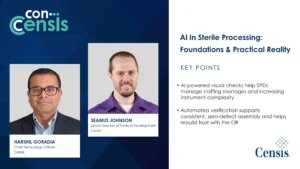How to Solve Some of the Most Complex Problems in Healthcare
The challenges healthcare executives and administrators face are constantly changing. Host Kevin Stevenson talks with the heroes behind the heroes that are enabling hospitals, urgent care centers and telemedicine operators to spend their time tending to patients, while they handle the logistics.
Technology and healthcare are a marriage made in heaven. As technological advancements evolve, so does the ability to treat patients in a new and innovative way. These tech and healthcare innovations are conquering the toughest of tasks when it comes to patient care.
On this episode of I Don’t Care, Host Kevin Stevenson talked with David Preiner, CEO of Medivolve, which seeks out disruptive technologies, ground-breaking innovations, and exclusive partnerships to help combat COVID-19 and generate remarkable risk-adjusted returns for investors. The duo talked about tech and healthcare, Preiner’s career in startups and entrepreneurship, which has spanned over a decade.
“Wouldn’t it be interesting if we could take that same concept that’s been used to treat some of the most complex problems in healthcare … and bring that approach to every American and make it very accessible” – David Preiner
Preiner has bootstrapped three companies and has spent a significant amount of time in entrepreneurship. Wanting to find a little bit of life balance, he started to get curious about biology. This led him on a path to the Harvard Extension School, where he dove headfirst into the subject. He eventually landed at Medivolve when the CEO position opened up.
“Medivolve has a couple of really key assets that made me curious about a problem,” Preiner said. These two things were an issue with COVID-19 collection sites, as well as pharmacy acquisitions.
One of the things he learned in his studies is how to treat patients. As a tech at Harvard Extension School, he noticed how important it was for healthcare providers to have a baseline of care for patients. When taking diagnostic tests, then adjusting medication, and then reperforming diagnostics so that doctors could see if a patient improved.
“Wouldn’t it be interesting if we could take that same concept that’s been used to treat some of the most complex problems in healthcare … and bring that approach to every American and make it very accessible,” Preiner said.
Listen to learn more about how Preiner wants to improve healthcare through tech and data.
Follow us on social media for the latest updates in B2B!
Twitter – @MarketScale
Facebook – facebook.com/marketscale
LinkedIn – linkedin.com/company/marketscale









